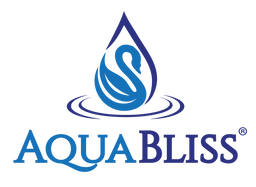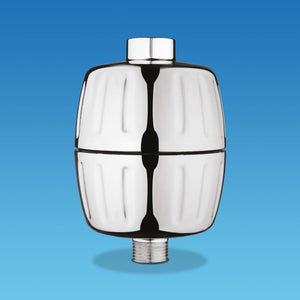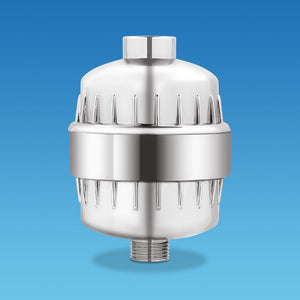The human body is composed of approximately 60% water, and it’s constantly losing fluids through sweat, urine, and even normal functions like breathing. To maintain optimal body temperature and ensure proper functioning, replenishing this lost water is crucial.
But the question remains: how much water should you drink a day? If you search for an answer online, you'll find conflicting information regarding fluid intake. The most common advice, often referred to as the "8 by 8 rule," suggests drinking eight 8-ounce glasses of water each day, totaling about 1.89 liters.
Other recommendations suggest that fluid needs vary based on individual circumstances and you should sip water throughout the day, regardless of whether you feel thirsty.
Given the differences in opinion, one thing is clear: water intake needs vary from person to person. This post will dive into the factors that determine how much water a person needs to drink to stay hydrated.
So How Much Water Should You Drink Each Day?

Every person is different, and daily fluid intake can depend on a range of factors. According to the U.S. National Academies of Sciences, Engineering, and Medicine, the recommended daily water intake is:
- Women: 11.5 cups (2.7 liters) of fluids per day
- Men: 15.5 cups (3.7 liters) of fluids per day
These numbers include drinking water as well as other beverages like tea, coffee, and even water-rich foods like fruits and vegetables, which contribute to staying hydrated. Roughly 20% of your daily water intake comes from food.
Several other factors can influence how much water you should drink each day:
- Location: If you live in a dry, hot, or humid climate, or at higher altitudes, you may need to drink more to compensate for increased fluid loss.
- Diet: Consuming caffeinated beverages, sugary drinks, or salty and spicy foods can lead to greater fluid needs, as these cause the body to lose water faster.
- Temperature: Warmer temperatures make you sweat more, meaning you’ll need to drink more to replace lost fluids.
- Activity level: If you engage in regular physical activity or spend time in the sun, you'll lose water through sweat and will need to drink more.
- Health conditions: Conditions like thyroid disease, heart disease, or infections, and medications like diuretics can increase your fluid needs.
- Pregnant or breastfeeding: Women who are pregnant or breastfeeding need additional fluids to support their babies and their bodies.
Do Water Levels Impact Energy and Brain Activity?
It's often said that dehydration affects our overall health, including our energy and brain function, and research supports these claims. Studies show that even minor dehydration can impair mood, focus, and cognitive performance.
In one study, a 1.36% decrease in body weight due to water loss after exercise led to poorer focus and mood, while another study on young men found that going 36 hours without water significantly reduced their energy levels and short-term memory.
Older adults, too, are affected, with studies showing that even a 1% loss of fluids can diminish endurance.
Can Drinking Water Help with Weight Loss?
Staying properly hydrated can also contribute to weight loss. Research indicates that drinking water before meals can help control appetite. Drinking 17 ounces of water 30 minutes before eating can reduce overall calorie intake, and one study even found that people who drank water before meals lost 44% more weight over three months.
Water can also boost your metabolism. Drinking 2 liters of water in a day may help you burn an additional 23 calories, which can add up to nearly 8,000 calories over the course of a year.
Does Drinking Extra Water Prevent Health Issues?
Staying hydrated is essential for preventing health issues. Adequate water intake can reduce the risk of kidney stones, alleviate constipation, and improve bladder health. Studies also suggest that staying hydrated can help manage certain conditions, including heart disease and urinary infections.
While there’s little evidence to support the idea that drinking too much water offers additional benefits, it’s clear that staying hydrated supports overall health.
Can Other Fluids Help You Stay Hydrated?

Water isn’t the only option for hydration. Other beverages, like tea, coffee, and sports drinks can contribute to your fluid intake. While caffeinated and sweet drinks are thought to cause dehydration, their sodium content and diuretic effects are often overstated.
These other beverages can still help you meet your fluid needs. Additionally, many foods, including fruits, vegetables, and even meats, have high water content and can support your hydration goals.
Hydration Is Key to Survival
The human body needs water to work properly, and drinking water regularly is one of the most basic ways to ensure that it does. The body’s natural cues, like thirst and dry mouth, help remind you to drink, but it’s important to recognize that thirst alone shouldn’t be your only signal to hydrate.
If you wait until you feel thirsty to drink, you may already be mildly dehydrated. Checking the color of your urine is another way to assess hydration: light yellow or clear urine indicates that you're well-hydrated, while dark yellow urine suggests that you need to drink more water.
For those with more intense fluid needs, such as athletes or people living in extreme environments, sports medicine professionals recommend monitoring your water intake closely to avoid dehydration.
Hydration is also crucial for people with certain health conditions, who should consult with their doctors about their specific needs.
Wrapping Everything Up
In the end, how much water should you drink a day? The answer is unique to each person. While the body will typically indicate when you need to drink, factors like environment, diet, and physical activity can affect how much water you should consume.
Keep in mind that proper hydration is about more than just drinking plain water. Whether you're consuming fruits and vegetables, sports drinks, or tea, it's important to maintain a balance that supports your health. To ensure you’re drinking clean and healthy water, consider using a refillable water bottle with filtered water.
AquaBliss offers water filtration solutions that ensure you’re getting the best water possible for your health.







